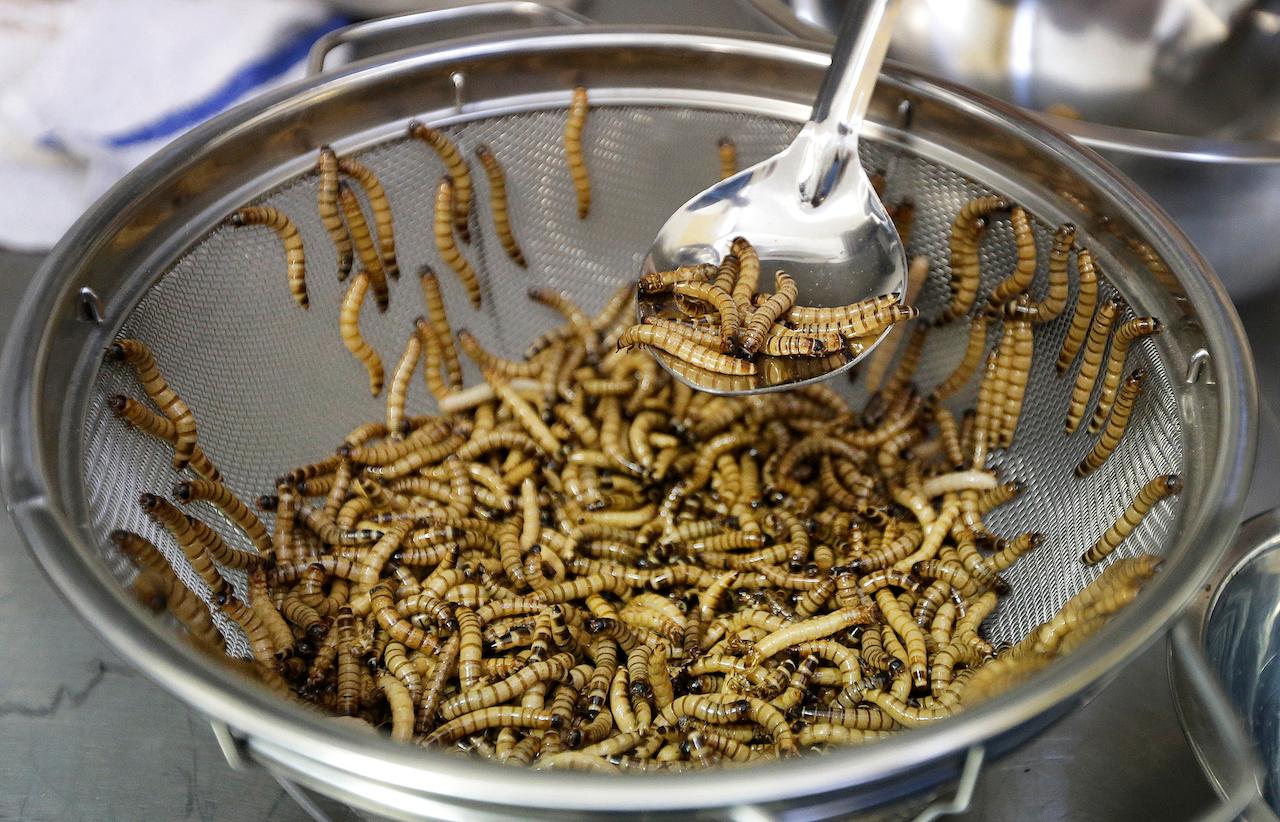Grub’s up: EU approves mealworms as greener meat substitute
Mealworms are the first insects to be approved as human food by the European Union.
Just In
Yellow mealworms, which may be enjoyed as a crunchy snack or ground into a protein powder, have been cleared for human consumption by the European Union.
The worms are just one of a series of insects being considered for the family dinner table by the bloc.
European regulators are trying out locusts, crickets, and grasshoppers, all of which are expected to be authorised in time.
The European Food Safety Agency (EFSA) revealed their decision that the dried larva of the insects was safe for humans to eat in their journal on Wednesday, noting only that people with allergies to dust mites and crustaceans might experience a reaction to the new food.
It is the first time insects have been approved as food in the European Union.
The Guardian reported that EFSA scientific officer Ermolaos Ververis said of the decision: “This first risk assessment of an insect is a decisive and necessary step in the regulation of novel foods in the EU by making science-based decisions and ensuring the safety of consumers.”
The EFSA classifies foods on whether they were widely consumed in Europe before 1997 or not. As a so-called novel food, insects need to be tested and certified by the EU before they are legal to produce and sell.
The idea of eating insects as a meat substitute is one that has enjoyed a lot of media attention in recent years with climate change campaigners agitating against traditional food.
So keen on creating a greener and “climate smart” future is the Swedish government that it has spent millions of dollars on promoting a variety of insects as food.
An economist cited by the EFSA noted on the race to replace meat with insects: “There are clear environmental and economic benefits if you substitute traditional sources of animal proteins with those that require less feed, produce less waste and result in fewer greenhouse gas emissions.”
The biggest problem for climate change campaigners trying to persuade Europeans to drop minced beef for minced worms is the “yuck factor”. Most Europeans simply don’t fancy creepy-crawlies on their fork.
EFSA expert Giovanni Sogari puts this down to “social and cultural” norms.
He is convinced such mealy-mouthed considerations will not stand in the way of grilled insects transforming the diets of ordinary people.
Subscribe to our newsletter
To be updated with all the latest news and analyses daily.
